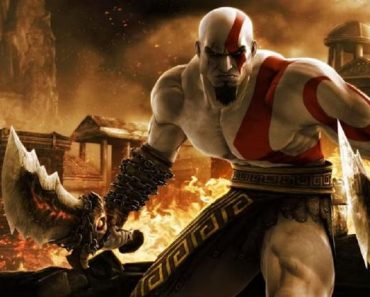1.
About a year ago, The Economist celebrated Israel’s isolation on its cover. Against a dusty background, apparently the Gaza Strip, the magazine’s editors showed a lone Israeli flag leaning on an improvised pole stand. The headline, “Israel Alone.” These were the days of the debate over the IDF’s entry into Rafah. The world largely opposed it. Of course, what else?
In Rafah remained the remnants of the organized resistance of the terror army that Hamas had built. For many years, the Philadelphi Corridor separating the Strip from Egypt was breached until then, and through it almost all weapons, ammunition, and digging machines were smuggled in – contrary to the false declarations of the Egyptians, as if they had guarded the border and prevented smuggling. It was clear that if we wanted to defeat Hamas, we needed to capture its last stronghold of resistance and choke off the oxygen pipeline from Egypt.

Hamas terrorisrs whose battalions had been defeated in other areas, fled to Rafah, and under the protection of the world’s naïve, they operated a well-oiled propaganda mechanism that marketed their victimhood. In Italy, for example, Prime Minister Giorgia Meloni rushed to declare in parliament that Italy opposed the entry into Rafah. Like her, we heard similar declarations from the French and other European Union countries, all inspired by the opposition of the Biden administration at the time.
Israel did not surrender to the pressure, and the IDF stormed Hamas battalions in Rafah while eliminating many fighters and capturing the main smuggling route on the border with Egypt. Giant tunnels were discovered there, which were destroyed and sealed.
2.
The Economist wanted to attack Israel by illustrating its isolation, how it is ostracized and acting contrary to the opinion of the enlightened world. Unwittingly, it echoed our existential condition, whose original model appears in our people’s foundational book. When Jacob returned to his homeland from a long exile, the enemy who had established himself in the land during his absence awaited him. As in the campaign against Rafah, even then at the dawn of our birth as a nation it was said, “And Jacob was left alone – and a man wrestled with him until the break of dawn” (Genesis 32:25). Dear nations, we are used to struggling alone. And not just for ourselves, but for the freedom of the world from tyranny that seeks to enslave us all in the name of a death cult. Fortunately, there are quite a few in the world who join this struggle and support Israel.
A year has passed and reality has changed for the better from Israel’s perspective. The Shiite axis has collapsed, Hamas has been severely beaten and its leaders eliminated, Hezbollah has collapsed and its leaders eliminated. The Assad regime remained without the protection of Nasrallah’s militias and collapsed like a house of cards in the face of another dictator. Our air force destroyed Iran’s air defense and left the ayatollahs’ regime exposed to a decisive blow. The Biden administration, which forced compromises on Israel that hampered the return of the hostages and strengthened Hamas, has been replaced by the Trump administration, which has brought a different spirit in favor of the global war against evil. The direction looks good.
3.
This week The Economist published a cover opposite to the one from a year ago. Against the backdrop of an Israeli settlement located on a hill, many Israeli flags are seen in the area, hinting at its expansion and control of the space. The chosen headline, “Israel’s Hubris.” In Greek mythology, hubris was associated with arrogance and lack of humility, impudence toward the gods, a feeling of “by my strength and the might of my hand” (Deuteronomy 8:17) and so on. In Greek tragedy, hubris bred complacency that blinded the hero from seeing how “sin crouches at the door” (Genesis 4:7). Therefore, he did not guard against his fate and caused his fall.
It is not inconceivable that this is what The Economist was aiming for, as its hostility toward Israel is well known. A characteristic of antisemitism or hatred of Israel is that it does not relate to Jews in a balanced way but in extreme descriptions – lowliness or haughtiness. When it seemed that Israel was stuck in a military and political campaign with no way out, our haters celebrated. Now that Israel is on the path to victory, they accuse us of arrogance toward fate and wish for our downfall. However, we do not live by their words.
4.
Nevertheless, if we ignore the headline, Israel’s deep answer is indeed holding onto the land and deepening our roots in the homeland’s soil. As I wrote at the beginning of the military campaign, it must end with the seizure of lands and their transfer to Israeli sovereignty. The kibbutzim that were destroyed and burned, whose residents were brutally murdered and kidnapped, need to plow the land in front of them all the way to the sea. The land that sent battalions of death needs to grow crops and raise children on it. There will be some correction in this. After the incredible atrocities and genocide committed against us by the Gazans, they have lost their right to live beside us.
We know that the moment they get relief and organize a bit, they will return to planning the next murder and invasion. This is their culture, and it is not our job to educate them. Therefore, everything must be done to move the population from the destroyed area to other places in the world.
5.
And a word about Europe. As of today, Israel receives a diplomatic and military umbrella from the Trump administration that favors it. We need to prepare now for the day after Trump, since then the political pendulum may turn against us. For this, we must act now among our friends in Europe and in public opinion there. We are investing little effort in this matter.
A combined operation is required between our various government ministries with their counterparts in Europe. Along with ministerial activity, we should also employ public relations firms, cyber warfare, and the use of artificial intelligence to deal with antisemitic and anti-Israeli propaganda in various media outlets and social networks. Israel has spent hundreds of billions on the military campaign and almost nothing on the information campaign. The truth is that what’s needed isn’t explanation (“Hasbarah”) but an attack on the enemy’s propaganda spearheads that influence global consciousness. This is absolutely possible.
6.
The pages of The Economist will dissipate like dust in history, while the eternal pages of the Bible will continue to nourish humanity’s spirit and serve as a source of strength and comfort for our people. When the angel, the messenger of Esau – a figure resembling our enemies who change from generation to generation – attacked the lone Jacob, he remembered another Jacob, “a mild man who dwelt in tents” (Genesis 25:27), a simple shepherd. He did not know that the years of exile had hardened him to fight for his life. And so it was. And then, when the enemy saw that he was losing, he asked to leave (a ceasefire agreement?). But Jacob is not satisfied with only saving his own life. He explains to the enemy that he will not let him go unless he acknowledges that Isaac’s inheritance – the land and the people – belongs to Jacob, otherwise, he will continue to fight him until his destruction. The campaign with the enemy must end not only in his clear physical defeat but in his cognitive defeat, in the admission that the land of the Bible belongs to the people of the Bible.
“And when he saw that he could not prevail against him… And he said: Let me go, for the day breaketh. And he said: I will not let thee go, except thou bless me!” (Genesis 32:23-27). In Hebrew blessing (beracha) has the same letters of firstborn (bechora), meaning Esau’s admission of Jacob’s seniority over Isaac’s inheritance. “And he said unto him: What is thy name? And he said: Jacob. And he said: Thy name shall be called no more Jacob, but Israel – for thou hast striven with God and with men, and hast prevailed!” (ibid 32:38-39). The name “Israel” appears for the first time when we no longer flee, but return fire for fire and defeat our enemies. Contrary to The Economist‘s claim, the people of Israel are not alone but fighting against global evil for the benefit of humanity. We are winning, thank God, but our spirit has not become haughty and we are not sinning with hubris, but acting with humility and faith to deepen our hold on the ancient homeland. The long journey that began in this Hebrew month of Nissan about 3,300 years ago, when we left Egypt as a people, has not ended. We are still walking it. Patience.






